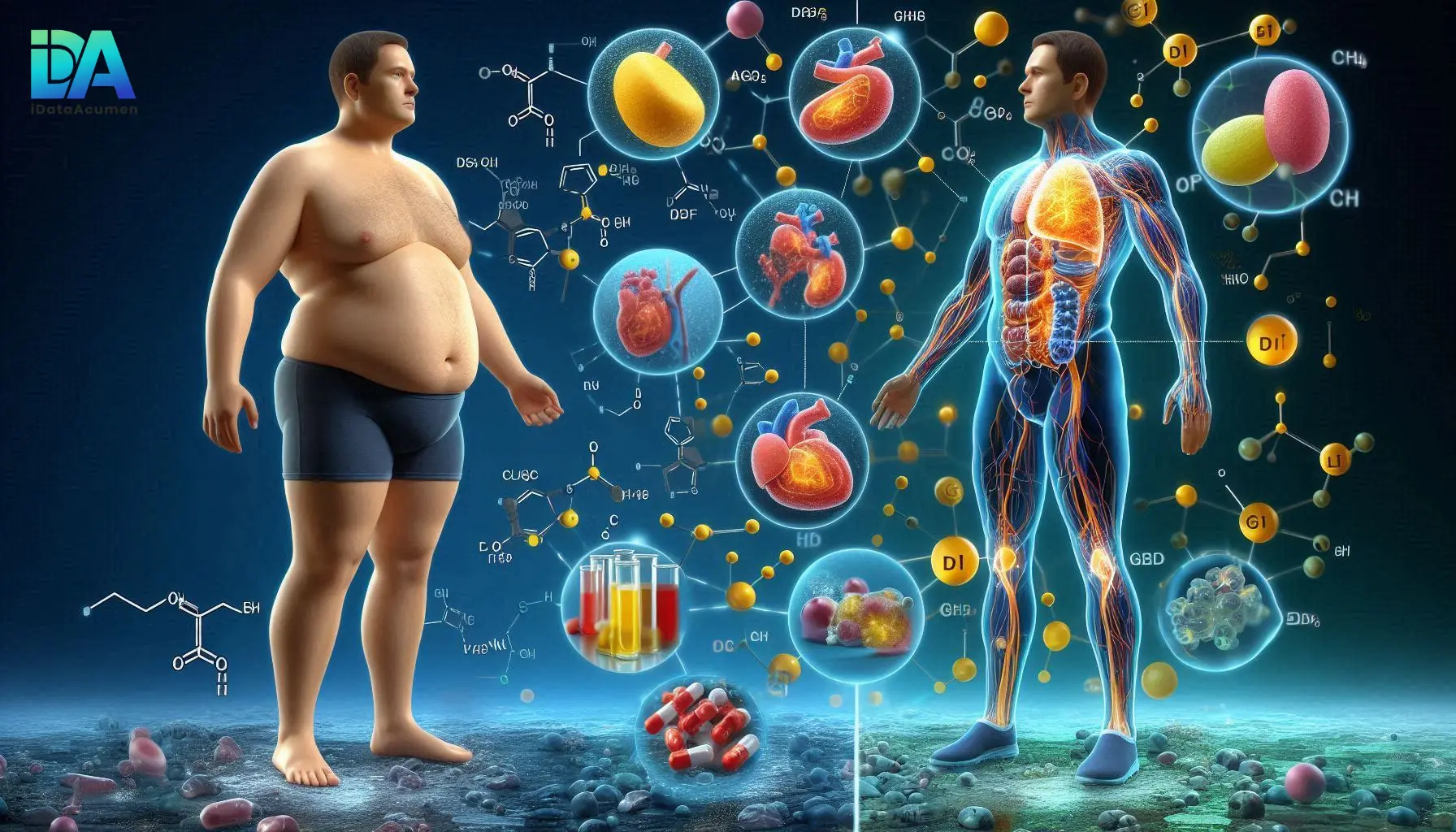
Courtesy: iDataAcumen
In June 2024, the diabetes and weight loss medication market was shaken up by exciting new data on glucagon-like peptide-1 (GLP-1) drugs. Pharmaceutical companies like Novo Nordisk, Eli Lilly, and others have been racing to develop new GLP-1 analogue medications with enhanced efficacy.
GLP-1 is a hormone produced in the gut that stimulates insulin release and inhibits glucagon secretion, helping regulate blood sugar levels. It also slows gastric emptying and increases feelings of satiety, leading to reduced food intake. Drugs that mimic GLP-1 have been used to treat type 2 diabetes for over 15 years now.
However, the recent wave of innovation in GLP-1 drugs has unlocked their tremendous potential for weight loss as well. Phase 3 clinical trial data released in June 2024 revealed that Novo Nordisk's semaglutide 2.4mg and Eli Lilly's tirzepatide achieved striking weight reductions of over 20% of total body weight in people with obesity or overweight.
This weight loss efficacy blows past the capabilities of previous anti-obesity medications like orlistat, liraglutide, phentermine-topiramate and others, which typically resulted in 5-10% weight loss at best. The impressive results, alongside a strong safety and tolerability profile, position these new GLP-1 drugs as potential gamechangers in treating obesity.
Type 2 diabetes and obesity are intricately linked - obesity accounts for 80-85% of the risk of developing type 2 diabetes. Sustained weight loss can dramatically improve blood sugar control and even lead to diabetes remission in some patients. The new GLP-1 medications thus offer a powerful two-pronged approach to simultaneously tackle both obesity and type 2 diabetes.
The alternative treatment options for obesity have been limited - older medications had modest efficacy, while bariatric surgery is expensive, invasive, and has potential complications. For type 2 diabetes, metformin and older classes of drugs could only go so far in controlling blood sugar levels as the disease progressed.
In contrast, the GLP-1 drug pipeline promises exceptional benefits by leveraging the body's own mechanisms for regulating metabolism. Their impressive clinical results indicate these could become the new first-line treatment for obesity and a cornerstone therapy for type 2 diabetes management.
Analysts project the expanded use of GLP-1 drugs could disrupt the obesity and diabetes markets significantly. Widespread adoption could help millions reverse their diabetes and obesity, delivering vast improvements in quality of life and reducing healthcare costs from obesity-related complications like heart disease, stroke, and others.
That said, a key obstacle could be the high costs and accessibility barriers of these novel, patented medications compared to older, generic drugs. Insurers and healthcare systems would need to weigh the higher upfront costs against potential long-term savings from improved health outcomes.
The latest wave of GLP-1 medications represents a groundbreaking advance in battling the dual epidemics of obesity and diabetes through a physiological, weight loss-focused approach. If real-world utilization matches the immense promise shown in trials, these innovative drugs could usher in a new paradigm for treating these chronic metabolic diseases more effectively than ever before.